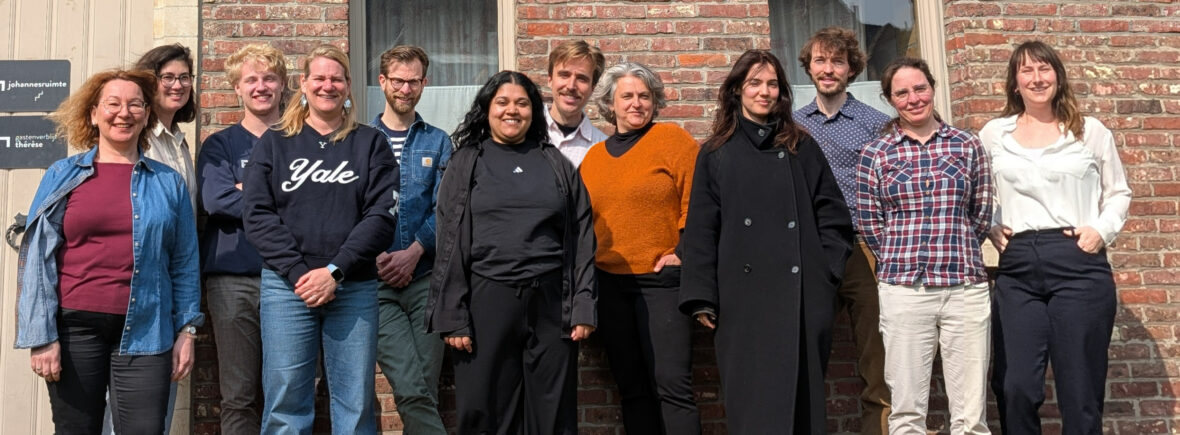The research group Social Enterprises & Institutions for Collective Action (SEICA) is based in the department of Business-Society Management at Rotterdam School of Management (RSM), Erasmus University Rotterdam. Currently, the team consists of approximately 15 researchers and support-staff working on societal engagement, chaired by both professor Tine De Moor and assistant professor Thomas Bauwens.
Our research
The core of the work done by research group SEICA focuses on community-driven governance regimes in past, present and future. This means that organizations which benefit the community and function with the explicit participation of community members, take centre stage in our research. In addition, many of our projects focus on systemic transitions, involving both social and ecological aspects. By taking a longitudinal approach – ranging from a few years to an entire millennium – our researchers aim at understanding the change that takes place in these systems over time.
The research subjects of the SEICA research group entail a multitude of community-driven forms of governance and organizations: they can be citizen collectives, community enterprises, social enterprises, or other forms of institutions for collective action. These self-governing organizations originating from collective action often apply different logics than the logics currently used by markets and states. To study this type of organizations, we take a community economy approach, addressing multiple value creation aimed at (local) communities, including the goals of the organizations we study, hereby looking at micro, meso, and macro processes and phenomena. In addition to studying the internal functioning of these organizations, we focus on their contexts, as well as on enabling and restraining conditions that affect the organizations’ emergence, internal and external functioning, scaling, and relationship to other stakeholders. In extension, this means that also social movements can be part of our studies.
Within the SEICA research group we conduct both empirical and conceptual research. Our research builds on existing knowledge, is independent, reproducible, and transparent. Moreover, we approach doing research as a reciprocal activity, believing in the emancipatory values of knowledge: our study subjects are not simply there to provide us with data, but should first and foremost be the ones who should benefit from past and future research results. Therefore, we try to bridge the gap between scientific research and societal partners and their needs, remaining critically engaged scholars. By our research and valorisation efforts, we aim at making various institutional logics, actors and practices visible that otherwise would not be recognized or only marginally receive attention from media, policy makers and others. By the way we look for patterns and evolutions among these institutions for collective action, we acknowledge our normative positions as researchers.
Our relationship to scholarly and societal communities
We connect to other researchers working on topics related to our subjects. Within the SEICA research group we envisage and apply interdisciplinarity in its most complete form. Our group members have a variety of disciplinary backgrounds – amongst others sociology, economics, history, environmental sciences, geography, and management – apply a broad range of methods that are often combined within studies, and contribute to conceptual and theoretical debates in various disciplines. Topics such as social enterprises, social entrepreneurship, cooperatives, commons, social impact management, community-based enterprises are central to our studies. These can take place in various sectors, from renewable energy, care, and mobility to insurance. In the field of Management Studies, our researchers mingle most with colleagues in Organisation science, Organization & Environment, Critical Management Studies, Social Issues in Management and Business History.
The research group is embedded in the department of Business-Society Management (B-SM) of Rotterdam School of Management (RSM), Erasmus University Rotterdam. Within the B-SM department, colleagues work on related topics such as polycentricity in climate governance, social change, corporate sustainability, stakeholder theory, and organizational psychology. There are additional connection points within Rotterdam School of Management. Multiple departments are grappling with the questions of sustainability (sustainable operations management, the role of technology in driving sustainability), social entrepreneurship (impact investment), etc. While the exact framing of their research questions might not be exactly equivalent to the core focus of SEICA, there are areas for fruitful cross-sharing of insights and methodologies, enriching the variety of topics and networks we relate to, as well as our methodological toolkit.
Members of our research group are open to engagement with researchers who are working on similar and adjoining themes, both within and outside Erasmus University. Among the concepts that we value highly within our research group are both the ideas on the emancipatory value of knowledge of Jürgen Habermas and the Ostromian conception of common-pool resources, collective action problems and polycentric governance, continued at, among other places, the Bloomington School of Political Economy.
In addition to our connections within Academia, we seek to engage with societal actors including, but not limited to; citizens, (social) entrepreneurs and (impact) financiers. We do so primarily through our online knowledge exchange platform CollectieveKracht.eu, which brings together stakeholders from science, finance, governments, businesses, citizen collectives and their networks and strives towards creating a constructive and ongoing dialogue between all of these stakeholders. To pursue our transdisciplinary goals, we constantly invest in our networks, building relationships that engender trust and creating an environment in which dialogues on an equal footage can take place. We firmly believe that reciprocity should be at the basis of our interactions with others, especially in our connections with societal partners, whereas extractive relations rather than an equal exchange seem to be more common in Academia. We want to be forerunners and advocates in changing this attitude, actively giving back to society the knowledge acquired, dealing with citizen collectives and community enterprises as partners in societal change.
Meet our team
Visit our team page for more information on our team members and their research interests.
